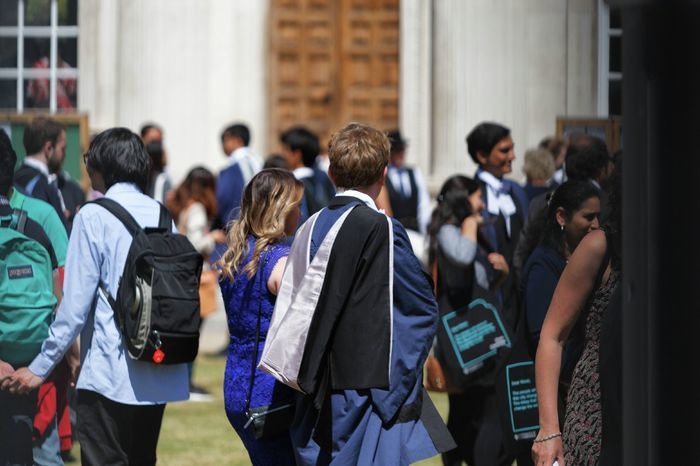Cambridge to scrap state school targets
University representatives have said that ‘there’s no proposal to have a formal target against school type’ in future access plans

Cambridge University is set to scrap state school admissions targets in its latest access plan, Varsity can reveal.
In an online open meeting held on 4th March, Cambridge University representatives stated that “there’s no proposal to have a formal target against school type” for its future Access and Participation Plan (APP).
The decision has been taken by the University due to shifting guidelines from the Office for Students (OfS), which is now “more interested” in individual factors, such as socio-economic circumstances and disabilities than schooling statistics, officials have said.
The APP is presently in its draft stages. It is set to be submitted in June 2024 and will address the academic years spanning from 2025-26 to 2028-29.
In its previous access plan for 2020-2025, the University stipulated that state school-educated students should make up 69.1% of the cohort by 2024-2025.
The webinar, attended by the pro-vice chancellor for education professor Bhaskar Vira and head of widening participation Tom Levinson, saw officials discuss the new Access and Participation Plan (APP).
The plan details “the University’s agreement with the Office for Students” (OfS) and sets out what will be done to “address barriers to equality of opportunity across the undergraduate student lifecycle”.
This year’s plan focuses on students from deprived socio-economic backgrounds, underrepresented regions of the country, underrepresented ethnicities, and those eligible for free school meals.
However, the University has not stipulated any target for admissions based on school type for the new plan, which spans until 2029.
When questioned about whether school type would be factored into the plan, Martin Thompson, director of undergraduate admissions, told attendees that there would be no formal target for school type.
The open meeting, attended by over 100 people, also revealed its planning to increase admissions from underrepresented areas in the UK, such as the North West, West Midlands, South West and Wales.
Cambridge vice-chancellor Deborah Prentice recently encouraged students from the North West to apply to Cambridge, admitting concern that admissions were “skewed” towards London and south-east England.
The plan, which aims to support prospective and current students and graduates, is regulated by the OfS, which expects a focus “on groups of students who are underrepresented at Cambridge”.
However, school type is not a characteristic normally used by the OfS or contained within its Access and Participation dataset.
In the 2022 admissions cycle, Cambridge accepted 72.9% from state school education and 27.1% from independent schools.
Approximately 5.9% of UK students are privately educated, according to data from the Independent Schools Council’s 2023 census.
This comes after the University was recently criticised for allegedly discriminating against privately educated white men, according to Buckingham University’s vice-chancellor.
Professor James Tooley claimed that Cambridge University is actively trying to reduce the number of “wealthier white males”.
A Cambridge spokesperson said: “The University will continue to take into account an applicant’s schooling, particularly if they come from a school which has not seen many applications to Cambridge.”
“The APP is being drafted at the moment and subject to further discussion around the collegiate University. Consideration of an applicant’s school type in isolation is not a factor that the Office for Students would expect to see as a specific target in the Access and Participation Plan, however,” they added.
 News / Under 3% of applicants for Cambridge academic jobs are successful7 April 2025
News / Under 3% of applicants for Cambridge academic jobs are successful7 April 2025 Features / Cambridge: where toxic productivity turns rest into a radical act8 April 2025
Features / Cambridge: where toxic productivity turns rest into a radical act8 April 2025 News / Rowing row continues as Oxford and Cambridge scrap women’s trial race9 April 2025
News / Rowing row continues as Oxford and Cambridge scrap women’s trial race9 April 2025 Sport / Previewing the 170th Boat Race7 April 2025
Sport / Previewing the 170th Boat Race7 April 2025 Comment / Death of the June Event?9 April 2025
Comment / Death of the June Event?9 April 2025






